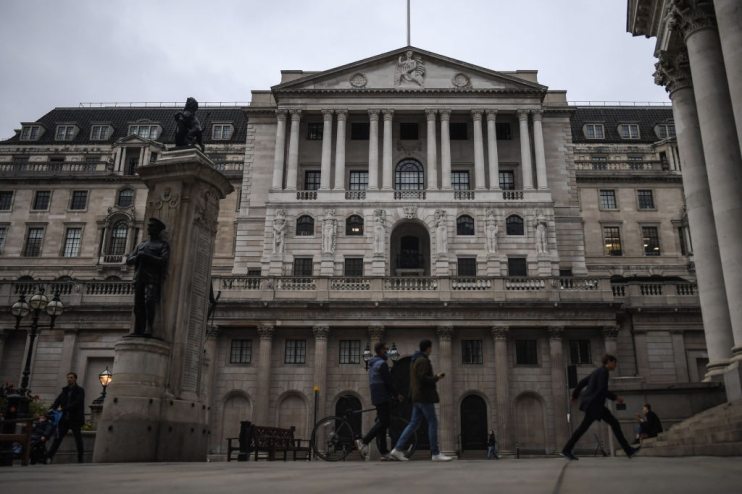Bank of England leaves rates at record low despite expecting persistent inflation spike

The Bank of England today decided to scupper a flurry of bets on interest rate hikes and leave them unchanged at a record low.
Despite mounting speculation from financial markets, economists and experts, the Old Lady left interest rates at 0.1 per cent and will see through the final leg of its QE programme.
The inaction caught some in the market unaware, with pound sterling now down more than 1.1 per cent against the US dollar.
The decision to maintain stimulative policy was taken despite the Bank expecting inflation to peak at around five per cent in April next year and for it to stay above its two per cent target until the final quarter of 2023, largely driven by soaring energy prices.
Andrew Bailey, Governor of the Bank of England, said: “Developments in energy prices… are expected to account for a significant proportion” of the inflation pick up.
He stressed the Bank will always consider the medium term inflation trajectory, instead of focusing on short term factors that are likely to be “transient”.
In the near term, Inflation will scale to 4.5 per cent in November and stay there throughout the winter period, the Bank expects, squeezing Brits’ real incomes.
Ongoing supply chain disruptions, compounded by a lack of data unearthing the impact of the end of the furlough scheme on the labour market and weaker than expected economic growth, coaxed the Bank into leaving policy unchanged.
The Old Lady did send one of the strongest signals yet to Brits that higher borrowing costs are coming down the line.
“Provided the incoming data, particularly on the labour market, are broadly in line with the central projections in the November Monetary Policy Report, it will be necessary over coming months to increase Bank Rate” in order for the Old Lady to meet its target, it said.
The Bank “judged that some modest tightening of monetary policy over the forecast period was likely to be necessary to meet the two per cent inflation target sustainably in the medium term.”
Officials on Threadneedle Street voted 7-2 in favour of leaving borrowing costs where they are. The Bank will finish the final leg of its QE programme, taking the stock of bond purchases to £895bn.
Michael Saunders and Dave Ramsden were the dissenters.
The decision to ignore red hot inflation could intensify the cost of living crisis that is threatening to bite Brits across the country.
Looming tax hikes, compounded by rising prices for essential goods is set to generate anaemic improvements in living standards over the coming years, according to the Institute for Fiscal Studies.
The UK economy will not return to pre Covid-19 levels until end of first quarter of next year due to weaker than expected consumer spending. The Bank previously thought it would fully repair by the end of this year.
Thomas Pugh, economist at RSM UK, said of the decision: “The MPC took the opportunity to push back on the degree of rate hikes priced into the market saying that if rates rose in line with markets expectations then inflation would be below the MPCs two per cent target in 2024.
“The MPC also acknowledged the recent supply disruptions mean the outlook for economic growth has weakened.”